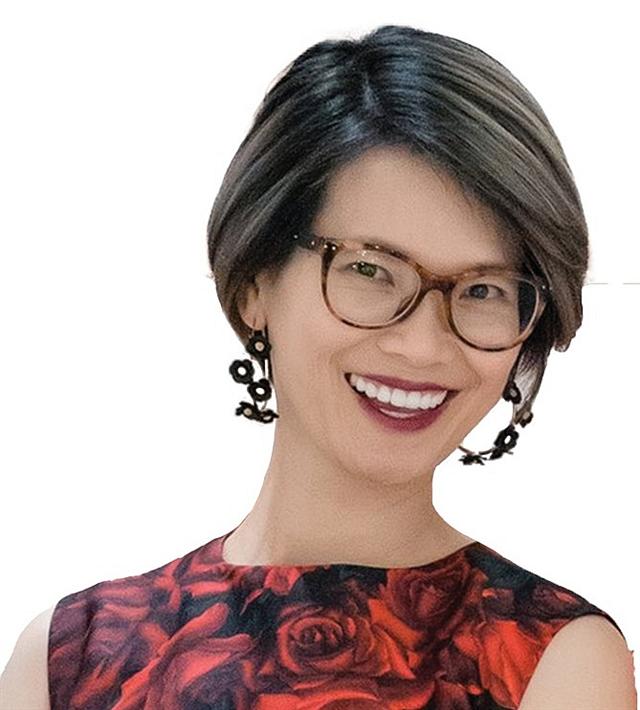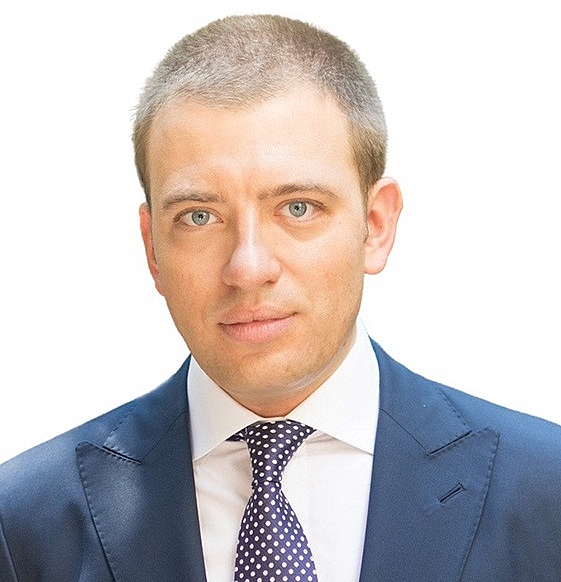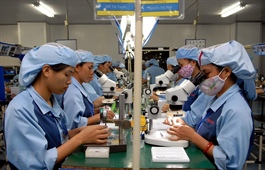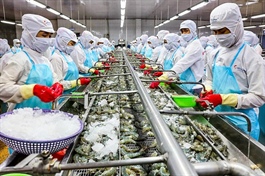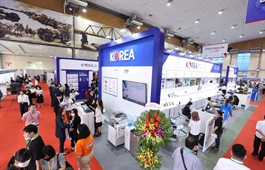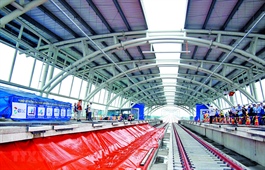Formidable rules vex foreign employers
Formidable rules vex foreign employers
The business community and non-Vietnamese employees have expressed dismay over changes in requirements to qualify as a foreign expert worker under Decree No.152/2020/ND-CP, which took effect from February 15 and regulates the recruitment and management of overseas workers coming to work in Vietnam.

Decree 152 has been criticised for its inflexibility with regards to working experience and suitable majors. Photo: Shutterstock
|
According to Clause 3, Article 3 of Decree 152, a foreigner entering Vietnam for work shall be considered an expert in one of the two standards. Specifically, he or she is required to have a university degree or higher, and at least three years’ work experience in his/her field corresponding to the role that he/she will be appointed to in Vietnam. Otherwise, he or she is required to have at least five years’ work experience and a practicing certificate corresponding to the role in Vietnam. Special cases shall be approved by the Prime Minister, following recommendations from the Ministry of Labour, Invalids, and Social Affairs.
Compared to Decree No. 11/2016/ND-CP issued in 2016, requirements related to the qualifications essentially remain the same, but Decree 11 only required foreign experts to have a certificate from any overseas agency, organisation, or enterprise confirming their expertise, and did not specify the prerequisite length of work experience.
Partner at Baker McKenzie Thuy Hang Nguyen said that the changes in the new decree have created difficulties for foreigners working in Vietnam who either need to renew their current work permits or apply for new ones, as well as those who plan to enter Vietnam to work at a future date.
Hang noted that before Decree 152, some local departments of Labour, Invalids and Social Affairs (DoLISA) used to accept a bachelor’s degree with any major, which did not have to match the foreigner’s job position in Vietnam, as qualified evidence for work permit applications as “experts”.
But recently, some local departments such as Ho Chi Minh City DoLISA have strictly requested a major stated in the bachelor’s degree or equivalent to be directly relevant to or exactly match the foreigner’s job position in Vietnam – otherwise, the work permit application will be rejected.
Facing changes mainly related to high-level personnel, foreign business associations in Vietnam and many businesses are worried that the rigidity of the new regulations could disrupt business operations, as not all experts have university degrees in their majors associated with their positions in Vietnam.
At a dialogue of Ho Chi Minh City DoLISA with businesses, a representative of the American Chamer of Commerce Vietnam said, “The decree requires that executives must hold degrees corresponding to their positions, but it is hard to show a specialised degree for a certain job as there are numerous interconnections in professions.”
Speaking at the meeting, a representative of the Canadian Chamber of Commerce in Vietnam (CanCham) said that in addition to a degree, using overseas working experience rather than work experience in Vietnam has caused multiple difficulties for businesses. “In the Fourth Industrial Revolution, not all experienced foreign workers have degrees or diplomas that are suitable to jobs in Vietnam,” said the CanCham representative.
Human resources representatives at some foreign companies said that they have been facing obstacles in completing procedures to apply for new work permits for non-Vietnamese executives. These companies do not know how to apply for new work permits for their experts because the workers do not have university degrees or practicing certificates, even though they may have high professional qualifications in the job.
A representative of one Japanese firm said that some foreign staff holding key positions at the firm had worked in Vietnam for 30 years, but current permits are due to expire at a time when the firm does not know how to handle such cases, as it can be hard to prove the staff’s work experience in foreign countries.
“Even in Vietnam, it is very normal to graduate from one major and work in another. Such regulations are quite rigid, and there should be room for more flexibility,” said Techbase Vietnam, a Japanese-backed internet company that has been present in this country for over five years.
Some business associations have requested flexibility in accepting university degrees and vocational qualifications that are not suitable for job positions, and accepting experience gained in Vietnam to be applied for work permits. This issue is being deemed even more important in the context that the ongoing pandemic is causing difficulties for people to live and work in new countries, or they could be stuck outside their home country and must work to make ends meet elsewhere.
Tran Le Thanh Truc, head of Employment and Work Safety under Ho Chi Minh City DoLISA, said that the country is always looking to attract foreign experts with high qualifications in the field in which they are recognised as vital.
“There is flexibility of professional qualifications in each specific case. Although we cannot immediately issue work permits if the qualifications are not appropriate, there will be a written response to request further explanation of the reasons for consideration,” Truc said.
However, despite receiving many petitions from foreign employers, Ho Chi Minh City DoLISA is still required to comply with the provisions of Decree 152 until there is a new document or circular guiding simplification of procedures.
|
Hoang Thi Na Huong - CEO, Protec
The definition and standards of qualifications for expert positions are difficult for enterprises to apply, especially those in the manufacturing sector like Protec. In Vietnam, we are one of the few pioneering factories of bicycle helmet production to develop a global share for Vietnamese products. It is difficult to find technicians with knowledge and experience to professionally operation machinery and manufacturing processes in Vietnam, so recruiting foreigner experts must often be considered for solution. It is difficult to invite them to work in Vietnam, but it is even more difficult to follow/secure the required papers according to Decree 152. Due to the pandemic, difficulties are even more burdensome on enterprises when the application for approval must be submitted to the People’s Committee of the province where it is registered. The government should encourage enterprises to make decisions for their own human resources because they are the ones to bear the costs. They understand deeply the needs and effectiveness for this essential recruitment. We cannot pay an expert 5-6 times and more than a local worker unless they are indispensable. The problem of cost is always put on the table for business leaders to balance the operation, but aside from that, we also have too many burdens to meet the management requirements of the government. In the current context, it really puts a lot of pressure on enterprises that need to employ foreign experts. Federico Vasoli - Managing partner, dMTV Global
Decree 152, which in essence raises the bar for the employment of foreigners in Vietnam, follows a regional – if not global – trend aimed at ensuring that domestic talents feel more empowered by their country, especially with the job losses caused by COVID-19. I welcome similar measures because, at least in Vietnam, they do not harm high-added value companies that should employ the best people, whether Vietnamese or foreign, and restrict the number of improvised ventures that thrive on asymmetries and inefficiencies. A professional firm, for instance, should only collaborate with the most qualified talents available. One is welcome to come to Vietnam, as long as one is fit for its challenges. Perhaps a degree and a polished CV do not reflect the true value that a person represents, given the complexity of each individual, but they are the accepted tangible standard for these policies. What is essential is that measures do not jeopardise the role of certain hubs, including Vietnam’s largest cities, and preserve cultural enrichment. In an ever tenser world, geographical and physical mobility of all classes – including students and retirees, not just high level employees – is vital in preserving peace and cooperation. David Salt - COO, LOGIVAN Technologies
Whilst the government should work to ensure that every foreign person entering the country brings value to Vietnam, I don’t believe this update is a positive step towards that goal. For technical personnel in academia or the sciences, a person’s education and technical qualifications can be a very good indicator of the level and nature of their expertise in a field of work. But for many business roles, the person’s skills and abilities are unlikely to be well represented by their undergraduate degree, and their previous role in a foreign country is likely to be different to the position they will hold when in Vietnam. In this situation, market forces are able to deliver a good result for Vietnam and complicated legislation is not necessary. Businesses have a deeper understanding of the requirements for each role than a government agency can have, and are naturally incentivised to select the best person for each position. Hiring foreign workers is usually complicated and expensive. Moreover, local workers have a number of distinct advantages, including familiarity with local customs and knowledge of the Vietnamese language that few foreign people are fluent in. Therefore, if a business chooses to hire a foreign worker over a local one, it is strong evidence that the person is indeed highly skilled in the relevant areas, and I feel it is not necessary to add further barriers to the process. |


